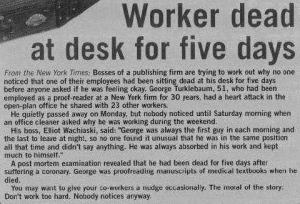By most people’s standards, I had a successful law career. I helped a lot of people and earned a lot of money. Looking back, however, I realize that I didn’t help as many people as I could, or earn as much as I could.
One reason is that I didn’t want to work that hard. I wanted free time to spend with my family and do other things. I didn’t want to work all day every day and burn out (or die) at an early age.
But there may have been a way to earn a lot more without sacrificing quality of life. In fact, doing this one thing may have made my life more interesting and gratifying.
An article in Forbes has the answer. “According to multiple, peer-reviewed studies, simply being in an open network instead of a closed one is the best predictor of career success,” the article says.
An open network is where “you are the link between people from different clusters”. A closed network, on the other hand, is where “you are connected to people who already know each other.”
In other words, the best predictor of career success is continually meeting new people, outside of your usual haunts. Most people, myself included, associate primarily with people they already know.
I’d much rather spend time with people I know, in familiar surroundings, doing things I am comfortable doing. The big boys, it seems, regularly get out of their comfort zone and “go hunting” in unfamiliar territory.
One of the studies showed that “half of the predicted difference in career success (i.e., promotion, compensation, industry recognition) is due to this one variable.”
Oh my.
Practically speaking, an open network means getting away from your regular bar association and chamber of commerce meetings, at least periodically, and attending other functions, even if they seem to be wholly unrelated to your current career path.
In his early life, Steve Jobs pursued many diverse interests that had nothing to do with business. Those experiences, and the people he met in exploring them, not only helped mold his creative eye, they introduced him to opportunities he was later able to capitalize on in his career.
In view of this, if I was building my law career today, I would spend more time pursuing things that fascinated me and meeting people who share my interests. I would be a kid again, exploring the world and all it had to offer, something Jobs did throughout his life.
Want more referrals but don’t want to ask for them? Here’s the solution











